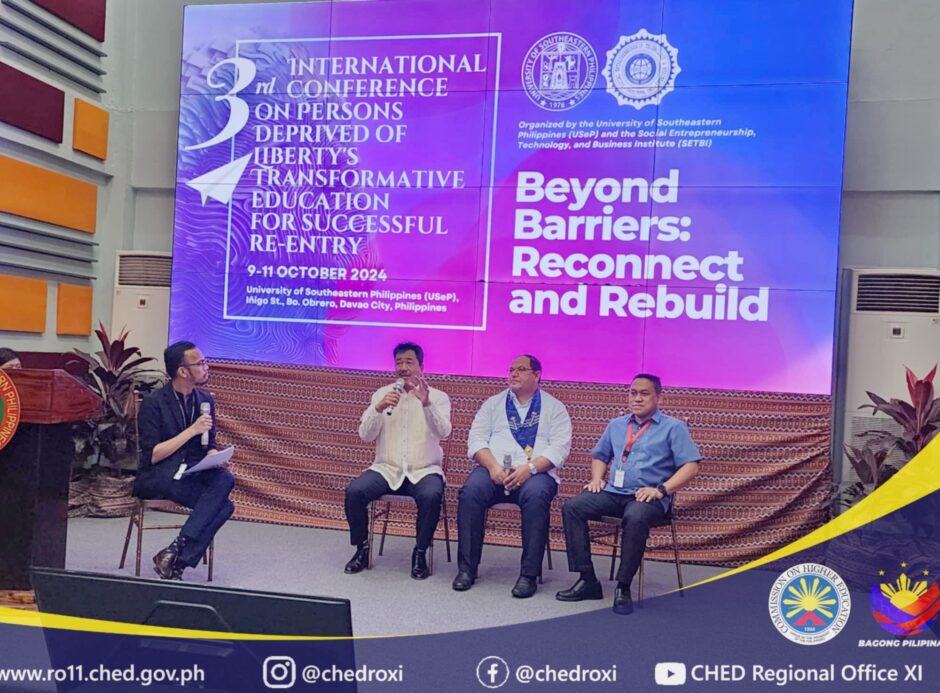 In recent years many homegrown terrorists have launched attacks in European cities like Paris, Barcelona, Brussels, London, for example, the 2015 January assaults at the satirical magazine Charlie Hebdo and at a kosher supermarket. Several of the terrorists who killed more than 160 people that year had common criminal backgrounds but had become radicalized in congested prisons. Most Philippine prisons are overcrowded too having been built in ad hoc style buildings and now contain overcrowded cells. When inmates who represent a certain ideology are housed in the heart of a prison, surrounded by more than 3,000 inmates, there is a huge risk that they will contaminate the thinking of others.Prison is not a nice place; inmates can only survive if they are a part of a certain group or ideology. It is easier to be recruited inside a jail than outside one because conditions in the interior favor radical recruitment of newcomers. Since most of the inmates are desperate and hopeless, radicals with an ideology can easily befriend new detainees and give them what they need. It is easy for radicals to convince inmates that society has rejected them, that it is their destiny, and that God or a charismatic leader has a mission for them, little by little brainwashing them, especially if inmates belong to certain minority groups such as Muslims or IPs. By persuading the detainees that society has scorned them, that they cannot get a job, particularly because of their religious background or ethnicity, that no good school in their neighborhood will accept them, the indoctrinator opens the inmates up to his or her ideology.
In recent years many homegrown terrorists have launched attacks in European cities like Paris, Barcelona, Brussels, London, for example, the 2015 January assaults at the satirical magazine Charlie Hebdo and at a kosher supermarket. Several of the terrorists who killed more than 160 people that year had common criminal backgrounds but had become radicalized in congested prisons. Most Philippine prisons are overcrowded too having been built in ad hoc style buildings and now contain overcrowded cells. When inmates who represent a certain ideology are housed in the heart of a prison, surrounded by more than 3,000 inmates, there is a huge risk that they will contaminate the thinking of others.Prison is not a nice place; inmates can only survive if they are a part of a certain group or ideology. It is easier to be recruited inside a jail than outside one because conditions in the interior favor radical recruitment of newcomers. Since most of the inmates are desperate and hopeless, radicals with an ideology can easily befriend new detainees and give them what they need. It is easy for radicals to convince inmates that society has rejected them, that it is their destiny, and that God or a charismatic leader has a mission for them, little by little brainwashing them, especially if inmates belong to certain minority groups such as Muslims or IPs. By persuading the detainees that society has scorned them, that they cannot get a job, particularly because of their religious background or ethnicity, that no good school in their neighborhood will accept them, the indoctrinator opens the inmates up to his or her ideology.
Prison has shown to be an incubator for radicalism. The leaders of Al- Qaeda and ISIS, two of the most hunted terrorist organizations in the world, are influenced by Sayyid Qutb, who is regarded as the founder of modern fundamentalism and is described as the most famous personality of the Muslims world in the second half of the 20th century. Sayyid Qutb, a Muslim intellectual, was imprisoned for ten years in Egypt where he continued his writings, but was re-incarcerated and hanged by the dictator Nasser 1966, a fateful event that made him a hero in the Muslim world. Many now believe Bin Laden adopted Qutb’s doctrine of violent resistance to the regimes perceived not to follow his brand of true Islam.
In addition, Ayman al- Zawahiri, Al-Qaeda’s current leader, also was radicalized in Egyptian prisons. He was arrested at age fifteen for his association with the Muslim Brotherhood and imprisoned again for three years for possession of arms. During that time he became a fanatical and violent extremist.
Although some believe he was a radical under Saddam Hussein, many surmise that the current ISIS leader, Abu Bakr al- Baghdadi, was radicalized during the four years he was held in Camp Bucca Prison, the Coalition’s primary detention center for Al-Qaeda prisoners in southern Iraq. These three extremists represent thousands of others imprisoned across the world. According to the EU’s Counter-terrorism Coordinator, Gilles de Kerchove, prison is “a major incubator for radicalization.” He argues for deconstruction of the jihadist ideology by a rehabilitation program in lieu of prosecution and one for those already incarcerated.
The challenge is how to stop such extremists from poisoning the minds of others. Some countries such as the UK and France have tried to set up total isolation units for terrorists. Critics say it creates a Muslim Alcatraz. Many countries in the West or even in the United States are struggling over how to solve this problem. The effective management of prisons is the best strategy to prevent inmates’ propensity to radicalize. Today there is almost no effort being made in prisons to monitor radicalization or even to rehabilitate inmates who are usually angry men and women and thus ripe for radicalization.
Today’s jail management should have more educational programs to counter radicalization of inmates. Generally jail management is challenged with achieving a balance between providing safety and control and a humane environment. Sometimes jail officers have to impose more rules and sanctions. The Davao City Jail management has done a great job in terms of providing educational programs for inmates to allow inmates to participate in activities that promote personal growth and move them toward effective, non-criminal life experiences even no gangs inside Davao City Jail. There is also clear evidence that faith-based group activities have helped with some of character development among inmates that leads to good behavior and a transformation in life choices. It is always the balance that leads to success.
These young men and women must have hope for a different future to break out of the spiral of failure. In the past leaders of this country have failed to change the socioeconomic factors that limited many Filipino people, especially those belonging to a minority group, to the bottom rungs of the ladder. Most often prisons have done nothing inside the prison to reduce recidivism or to prepare inmates when they leave the jail and go out on the street again. This lack of preparation and life-altering education leaves room for uninformed, extremist interpretations of Islam or any kind of ideology to grow while they are inside the prisons. Because inmates generally feel alone, angry, and marginalized by society, it is vitally important to have some kind of educationally program in place to debunk this radical ideology and to give inmates a different transformational context of their faith and another narrative for their minority group.
The more educational programs we have inside the jails across the nation, the less room there will be for radicalization of inmates because they will have hope and consequently not fall prey to those seeking victims to indoctrinate. This hope makes the personal decision to radicalize toward violence less attractive. Further, this kind of program will lead to a shift in their cognitive thinking, the notion that changing the way an individual thinks will change his or her behavior. Providing an alternate life choice for inmates ensures a minimum chance of their being radicalized toward violent conduct,
Dr. Aland Mizell is President of the MCI and a regular contributor to Mindanao Times. You may email the author at:aland_mizell2@hotmail.com

